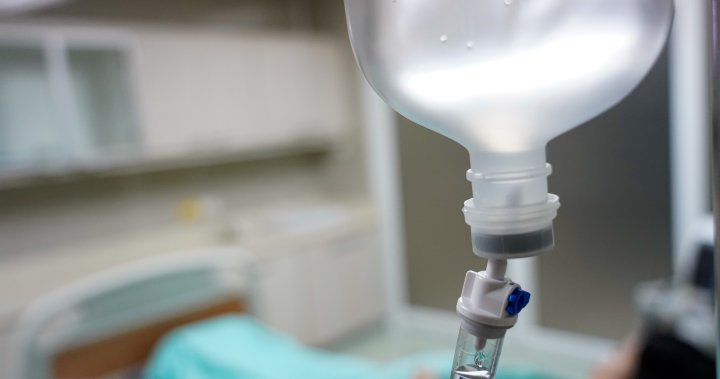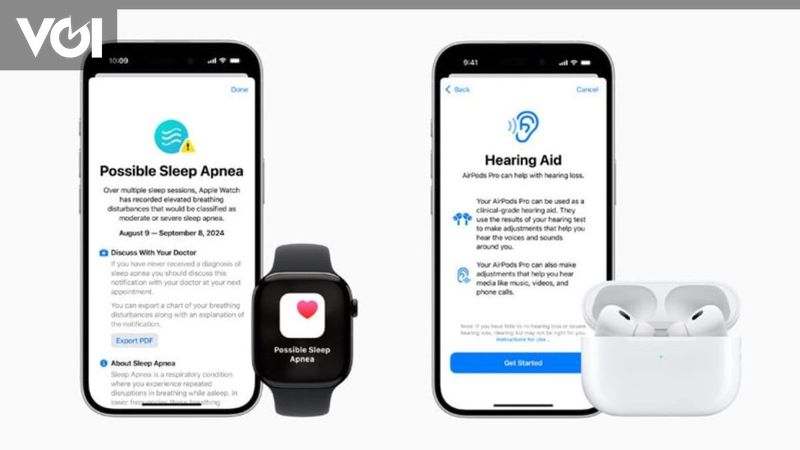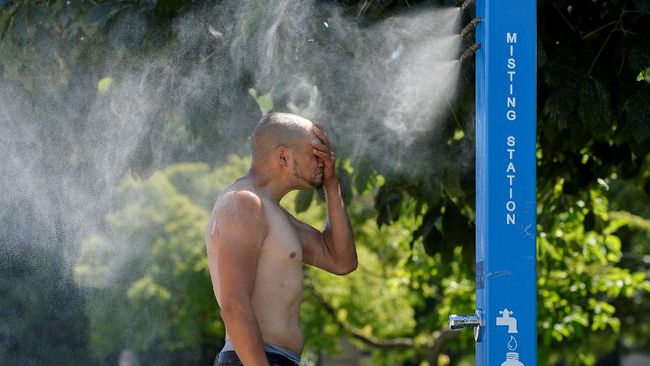Hospitals across the United States are struggling to cope with a shortage of IV fluids after Hurricane Helene forced the closure of key facilities that produce most of the country’s supplies, which also supply health care providers in Canada.
Baxter International Inc., a medical technology company that supplies hospitals with 60 percent of U.S. supplies of intravenous (IV) drips and peritoneal dialysis solutions, was forced to close its doors in late September after Hurricane Helene devastated the southeast coast of the United States.
The medical company also supplies intravenous fluids to Canada, but so far no shortages have been reported. There is a Baxter manufacturing plant in Ontario.
A spokesperson for Nova Scotia Health told Global News on Wednesday that while its hospitals receive supplies of intravenous fluids from Baxter, they have not experienced any shortages.
“Baxter has not reported any issues to us with its product, and there has been no impact on the supply of infusions to Nova Scotia healthcare facilities,” the spokesperson said in an email.
Global News asked Baxter International if supplies from its facilities in Canada could be diverted to the United States. A spokesperson provided a link to the company’s statement and did not directly respond to specific questions.
Global News also contacted Health Canada about this but has not received a response.
IV fluids is a liquid administered directly into a vein intravenously or by injection. They help maintain or restore the patient’s fluid balance, administer medications, and provide essential nutrition.
The supply shortage occurred after Hurricane Helene struck Florida on September 26 and tracked along the southeastern United States, bringing high winds and deadly flooding that created a path of destruction that stretched more than 500 miles from Florida to the southern Appalachians.
The storm destroyed roads and homes, leaving hundreds of people missing and many dead. On September 29, Baxter announced that its North Cove, North Carolina, factory had flooded, forcing it to halt production.
“The impact of Hurricane Helene caused temporary supply interruptions at Baxter’s Marion, North Carolina facility,” the U.S. Department of Health and Human Services (HHS) said. said Wednesday in a press release.


Receive weekly health news
Get the latest medical news and health information every Sunday.
“The Baxter facility supplies the majority of IV solutions, irrigation fluids and peritoneal solutions to the U.S. medical system. There are currently shortages of normal saline IV fluids, normal saline irrigation fluids, sterile water irrigation fluids, and five percent dextrose IV fluids prior to Hurricane Helen. Supply disruptions resulting from the storm at Baxter’s facilities will likely result in further stresses on IV fluids.
The U.S. health agency said Hurricane Milton, expected to hit Florida on Wednesday, could also disrupt the supply chain of intravenous fluids.
On Wednesday, Baxter provided an update on its facilities, outlining steps to manage inventory and minimize disruptions to patient care. This includes limiting stockpiling, increasing allocations to children’s hospitals to 100 percent, the company added.
Baxter said it is also increasing U.S. IV fluid allocations for direct customers from 40 percent to 60 percent and for distributors from 10 percent to 60 percent, effective Wednesday.
“Our goal is to return customers to 100% allocation levels as soon as possible. “This will be achieved through a combination of product imports from other Baxter facilities and the resumption of operations and increased production at our North Cove facility,” the company said.

Using Gatorade instead of IV fluids
Paul Biddinger, an emergency room physician at Mass General Brigham in Boston, said at a news conference last week that the hospital had received only about 40 percent of its supply of intravenous fluids from Baxter.
Mass General Brigham, which includes 12 hospitals, has been giving some patients water or Gatorade instead of giving them IVs, Biddinger said. He added that anyone who needs an infusion can still get one and that the system’s clinical services are operating normally.
“It’s too early to say what will happen if this continues for weeks or months, but we have systems and plans in place to address it,” he said.
American Hospital Association (AHA) Monday issued a statement expressed great concern about the closure of the plant due to storm damage. The association also expressed concern after Baxter and other IV solution providers implemented strict order allocations for their customers and stopped accepting new customers.
“As a result, our members are already reporting significant shortages of these life-saving and life-sustaining products,” he said. “Patients across America are already feeling these impacts, which will worsen in the coming days and weeks unless additional efforts are made to mitigate this situation and minimize its impact on patient care.” »

In response to the shortage, the AMA urged the U.S. government to take immediate action to increase the supply of infusion solutions for hospitals and requested that a national emergency be declared under the National Emergencies Act .
Based in Virginia UVA Health University Medical Center said it was postponing several elective surgeries over the next few days due to a shortage of intravenous fluids. He added that full recovery “could take several weeks.”
Los Angeles-based Cedars-Sinai Medical Center told Reuters in a statement that following the interruption, “to actively conserve IV fluids, we have implemented contingency plans and are reviewing our needs infusion” while looking for other ways to obtain infusions. fluid.
– with files from the Associated Press and Reuters

“Travel nerd. Social media evangelist. Zombie junkie. Total creator. Avid webaholic. Friend of animals everywhere. Future teen idol.”




:strip_icc():format(jpeg)/kly-media-production/medias/3387188/original/007486800_1614303448-banner__1_.jpg)



